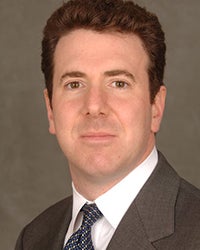Title: Professor: ISIS Attacks on U.S. Homeland Less Likely Than School Shootings
Americans should worry more about school shootings than terrorist attacks on the U.S. homeland, says School of Foreign Service professor Daniel Byman, the recent author of Al Qaeda, the Islamic State, and the Global Jihadist Movement: What Everyone Needs to Know.
Americans should worry more about school shootings than terrorist attacks on the United States homeland, says School of Foreign Service professor Daniel Byman, the recent author of Al Qaeda, the Islamic State, and the Global Jihadist Movement: What Everyone Needs to Know.
The book, recently published by Oxford University Press, is an overview of terrorism from the early days of Al Qaeda to the rise of the Islamic State, also known as ISIS and ISIL.

Byman believes America needs to be more resilient than it has been after the 9/11 attacks.
“There have been very, very few terrorist attacks that have killed over 100 people,” the professor says. “Some of our policies such as drone strikes have been good, and I’m on record supporting them, but I would say that the threat of terrorism is real but limited, and we need to respond in a real but limited way.”
Exaggerating Dangers
He adds that the memory of 9/11 should not “drive policy the way it has for much of the Bush and much of the Obama administration as the threat has changed,” but approves of the president’s recent decision to keep some troops in Afghanistan.
“That involves a relatively small number of troops and a very discreet mission, linked to what we see as our interests overseas,” Byman says. “Immigration policy to me is an example of overacting, where I think we’ve kind of exaggerated the dangers of taking more Syrian refugees to the point where it’s really detrimental to what I think we should be accomplishing.”
Though Al Qaeda and ISIS dislike America, Al Qaeda has focused more on the United States and the West, while ISIS is focused on the Middle East, he says.
Range of Responses
“The Islamic State wants fighters to come and fight in Iraq and Syria, not train them and send them home to the West,” Byman notes.
Combatting these organizations involves a lot of different approaches, including the use of drones, arrests, social media, opposing ideology and terrorist finances.
“Some are effective and some are not, and some are only effective some of the time,” he says. “If we thought about what our policy is toward fighting disease, it ranges from such things as encouraging companies to develop new vaccines, asking people to wash their hands and screening diseased people who are coming to the United States. There’s a whole range of things and no single one is the answer.”
He says America should also recognize that there are limits to what can be accomplished.
“Terrorism for the most part is a problem that can be reduced, but it’s very hard to end it,” he says.
Social Media and ISIS
While the U.S. government is fighting back with its own social media campaigns against the sophisticated efforts of ISIS in that area, the process is somewhat counterintuitive.
“The way social media works in general is that it’s a bottom up phenomenon,” Byman notes. “The way government works is very top down. We very much don’t want the 100,000 government employees tweeting simultaneously about the same thing, because then who would speak for our policy … but that does not work well with effective social media.”
He said that community engagement is the way to go in counteracting ISIS.
“If someone starts to tweet out about how awesome the Islamic State is, it’s very hard for people who don’t know them to even notice,” Byman says. “But their friends will, because they’re on Twitter. And so how do you get the friends to say there’s a problem here? We need to be working withtheir communities.”
Lone Wolves
But he also says social media is very useful for intelligence agencies in other ways.
“One of the biggest problems historically in counter-terrorism is how do you find the person who hasn’t done anything until the bomb goes off?” Byman says. “And the answer now is there are social media clues.”
The professor is now working on a book about foreign fighters who’ve gone to fight in Iraq, Syria and other places in the Middle East.
“The vast majority of foreign fighters were not involved in national terrorism upon return,” he says. “There will be some lone wolf attacks. There will be someone who comes back and does it again. It’s a real problem but to me more limited. Our issue should be what it means for America’s interests in the Middle East, instead of only focusing on the security of the U.S. homeland.”